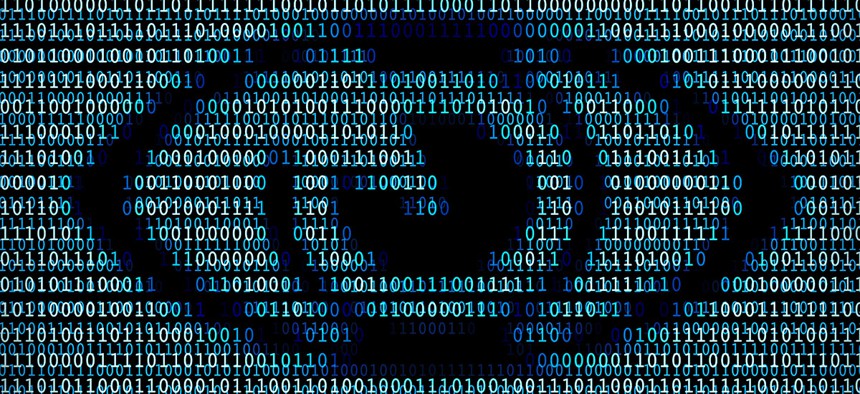I Bought a Report on Everything Known About Me Online

enzozo/Shutterstock.com
Data brokers collect and sell people’s personal information. How accurate is what they find?
On a recent Thursday, I waited for an email supposed to contain every personal detail the internet knows about me. The message would be from online data broker—a company that collects and sells information many people would hope is private. This includes browsing history, online purchases and any information about you publicly available: property records, court cases, marital status, social-media connections and more. Facebook collaborates with data brokers for targeting advertisements. In some states, the Department of Motor Vehicles, among other agencies, sells information to brokers. Brick-and-mortar stores do, too.
As I refreshed my inbox, I listened to garbage trucks outside my window begin to make their evening rounds through Taipei’s Beitou District. I work remotely, so I’ve opted to travel from city to city for the past 11 months, exploring the Canary Islands, Bulgaria, Serbia, Hungary, Israel, Vietnam, South Korea and Taiwan, all while editing books and answering emails. The internet has been my most permanent residence, both my office and the nexus of my social life. I generate data all day as I make money, stay in touch with friends, and order e-books to read in my spare time.
In the time I’ve been away, Congress has repealed protections that would have blocked internet providers like AT&T, Comcast and Verizon from sharing browsing data with other companies. It’s unlikely these legislative changes will have a significant effect on the relationship between data brokers and internet-service providers, but they do bring concerns about privacy to the fore, even more than usual. And when the news first broke, it caused a lot of confusion about just how much data companies will one day be able to collect and just how far people need go to protect themselves.
It all sounded scary enough I wondered what would come up if I bought data about myself from a data broker. With a quick Google search, I found a company that promised to detail net worth, age, Zip code and education, among other personal information. All I had to do was upload a text file of the email addresses of people whose info I wanted (in this case, just my own) and pay a $50 fee. The whole endeavor gave me pause. It seemed like I was about to do something that violated the company’s lengthy terms of service. Then, there was the queasiness about the data itself: Did I really want to know?
The report arrived in my inbox a matter of hours later with an accompanied missive trumpeting, “Wow! That was easy.” Yes. I never had to talk to a customer service representative nor identify myself. It was just like any other transaction. My misgivings gave way to glee. A strong Christmas morning vibe overtook me. Would I find something I didn’t know? There was a part of me that genuinely believed the internet knew me best: Maybe I’d discover a pattern in my life that could point toward the future—a palm reading constructed from metadata.
In the zip file, I found a PDF, a spreadsheet and a .txt file. I chose the spreadsheet first, and this was the first of many letdowns. It was merely a summary of how many of the email addresses had provided “matches” for the various information categories. I tried again with the charts, which aren’t visually interesting when they each feature one piece of data about a single subject. The pie chart, for example, was just an uninterrupted blue circle labeled “Female 100.0%.” I got a sense I had wasted my money.
Finally, I opened the.txt file, and as though I had time traveled back to the advent of personal computing, a document I was reading in Notepad was the most useful of the three: It included each data point, organized email address by email address. But much of the data was flat-out wrong.
If you like percentages, nearly 50 percent of the data in the report about me was incorrect. Even the zip code listed does not match that of my permanent address in the U.S.; it shows instead the Zip code of an apartment where I lived several years ago.
Many data points were so out of date as to be useless for marketing—or nefarious—purposes: My occupation is listed as “student”; my net worth does not take into account my really rather impressive student loan debt. And the information that is accurate, including my age and aforementioned net worth (when adjusted for the student debt), is presented in wide ranges.
Historically, data brokers don’t do nuance. Companies care about demographics: If they can get information that is in the right ballpark, it’s likely to suit their needs just fine. I thought opening my data would be like looking in a mirror, maybe a dressing room mirror under lighting that makes you think you should start taking many vitamins. Instead, it was like seeing an expressionist painting of myself. I caught glimpses of something I recognized, but everything was hazy and a little off.
The sight was a relief. Conversations and debates about privacy tend to take for granted the technology invading privacy finds information that is correct. But while our data is collected aggressively these days, clearly companies still aren’t infallible. Maybe the death of privacy isn’t quite so near.
So I did something I probably should have done much earlier in the day. I got up from my computer. I went either to get lo mein or to buy dumplings from the cart outside our apartment—I don’t remember which. Some things aren’t worth tracking. Most facts couldn’t tell you who I really am, anyway.





